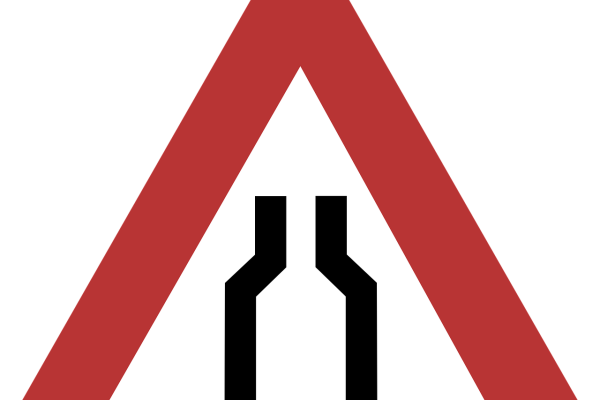July 18th, 2025 | 07:10 CEST
Rheinmetall's boom in demand, Power Metallic Mines' key role in critical raw materials, and BYD in crisis?
The global hunt for strategic metals is driving markets into breathtaking volatility. Military expansion and the electromobility boom are driving demand for key raw materials, while geopolitical rifts pose a threat to supply. Whoever masters these bottlenecks controls future technologies and security-critical chains. Investors sense opportunities worth billions, but only a few players are positioning themselves decisively at the critical points. We therefore take a look today at Power Metallic Mines, an indispensable supplier, as well as Rheinmetall and BYD, which represent the raw material-hungry industries.
time to read: 5 minutes
|
Author:
Armin Schulz
ISIN:
RHEINMETALL AG | DE0007030009 , POWER METALLIC MINES INC. | CA73929R1055 , BYD CO. LTD H YC 1 | CNE100000296
Table of contents:

"[...] Nickel, therefore, benefits twice: firstly from its growing importance within batteries and secondly from the generally growing demand for such storage. [...]" Terry Lynch, CEO, Power Nickel
Author
Armin Schulz
Born in Mönchengladbach, he studied business administration in the Netherlands. In the course of his studies he came into contact with the stock exchange for the first time. He has more than 25 years of experience in stock market business.
Tag cloud
Shares cloud
Rheinmetall – How the defense contractor is mastering raw material risks
Critical raw materials, such as rare earths, tungsten, and gallium, are the lifeblood of Rheinmetall's high-tech products, ranging from precision ammunition to sensor systems. The problem is that up to 90% of these materials come from a few sources, primarily China. Political tensions or export restrictions could quickly trigger bottlenecks here. For a company whose defense division recently posted 73% revenue growth, that would be a direct hit to the supply chain.
Rheinmetall is pursuing a clear dual strategy to counter this. First, vertical integration, for example, through the acquisition of nitrocellulose specialist Hagedorn-NC, in order to produce key components in-house. Second, the Company is systematically expanding its global partner network, for example, with joint ventures in India, thereby diversifying its sources of supply. The goal is to establish a more resilient supply chain that is less susceptible to geopolitical disruptions. At the same time, there are rumors that the Düsseldorf-based company plans to sell its automotive division in order to focus entirely on the defense business.
Demand continues to provide a tailwind for Rheinmetall. NATO countries are now aiming to spend 5% of their economic output on defense, with a focus on "hard" systems. The group is benefiting from its diverse portfolio, which spans a range of products, from artillery to electronics. Its order backlog of EUR 63 billion speaks volumes. However, investors should keep an eye on the Company's dependence on raw materials. If risk diversification does not proceed at the planned pace, this could slow down the ambitious expansion of production. The share is currently trading sideways and costs EUR 1,844.00.
Power Metallic Mines – Nisk project shows unique potential
Power Metallic Mines is steadily advancing exploration at the Nisk project in Quebec. With four active drill rigs, up to 25,000 meters are currently being drilled in the high-grade Lion area and along the Nisk-Lion-Tiger trend. Particularly impressive are results such as 12.54 m with 10.99% copper equivalent in hole PML-25-012a, which confirm the westward extension of the Lion Zone. At the same time, field teams are mapping the newly acquired claims, and a large-scale air EM magnetic survey is underway. Crucial is the discovery of hybrid mineralization between Nisk and Lion, a rare combination of copper-PGE and nickel-copper sulfides that breaks the geological model and points to greater district potential.
This also explains the recent acquisition of 167 sq km of adjacent claims from Li-FT Power, which triples Power Metallics' control area to 212 sq km. This secures approximately 50 km of strategic basin margins, the geological environment in which Lion and Nisk were formed. Polymetallic systems of this type are extremely rare globally and often occur in clusters. This is precisely what makes Nisk so compelling. Within a single, manageable district, it combines two mineralized systems: Lion, where copper and PGE are dominant, and Nisk, which primarily contains nickel, copper, and cobalt. Encouragingly, the newly secured areas on the southern side of the basin are already exhibiting geochemical anomalies that indicate the presence of further clusters of this type. This opens the door to discovering not just one, but several economic deposits.
At the same time, Power Metallic is strengthening its global portfolio. The exploration license for the Jabal Baudan copper-gold-zinc project in Saudi Arabia's mineral-rich Jabal Sayid belt has been secured. This strategic bridgehead is supported by government funding of up to CAD 2 million. However, the focus remains clearly on Canada. The fully funded 100,000 m drill program through 2026 aims to expand Lion and Nisk, and understand the connection between them. With six drill rigs planned to start in the fall, testing of new targets on the newly acquired properties will be accelerated. Power Metallic controls not only promising resources, but also the entire geological setting in which they occur. This is the lever for long-term value. The stock is currently trading at CAD 1.20.
BYD – Between commodity risks and price wars
Dependence on critical raw materials remains an Achilles' heel for BYD. Lithium is indispensable for its in-house batteries, while phosphate is a key component of low-cost LFP cells. Although China's dominant position in rare earths and copper secures supplies for the time being, global bottlenecks or geopolitical tensions could significantly impact production. Despite high vertical integration of around 70% of value added, BYD is not immune to supply chain risks. Alternatives such as sodium-ion batteries offer hope in the long term, but do not solve the acute problem.
BYD is currently under pressure in its operating business. A fierce price war in its home market of China is forcing the Company to offer drastic discounts of up to 34%, which is putting noticeable pressure on margins. At the same time, production cuts point to overcapacity and high inventories – a clear sign of crisis. International expansion remains bumpy. While sales in China are still growing, new registrations in Sweden are disappointing at only 629 units in the first half of 2025, as Scandinavians are considered early adopters. This combination of domestic price pressure and tentative internationalization is weighing on the short-term outlook.
In the long term, BYD is bucking the trend with strong fundamentals. Vertical integration secures cost advantages and enables robust gross margins of around 20%, even for low-cost vehicles. Massive R&D investments are driving innovation in areas such as autonomous driving. BYD is also expanding skillfully in emerging markets and establishing local production. However, the road ahead remains rocky. Geopolitical risks, regulatory intervention in China, and fierce competition continue to challenge management. The next few quarters will determine whether BYD can maintain the balance between growth and profitability. The stock is currently available for EUR 13.675.
The global hunt for critical metals is intensifying, with three companies exemplifying the opportunities and risks involved. Rheinmetall is overcoming its extreme dependence on raw materials through vertical integration and strategic partnerships in order to meet booming demand. Power Metallic Mines is developing a potentially unique project with the polymetallic Nisk project in Quebec, positioning itself as an indispensable supplier for future technologies. Despite strong fundamentals, BYD is under acute margin pressure due to the fierce price war in China and international teething problems. Whoever controls the supply chains dominates the competition.
Conflict of interest
Pursuant to §85 of the German Securities Trading Act (WpHG), we point out that Apaton Finance GmbH as well as partners, authors or employees of Apaton Finance GmbH (hereinafter referred to as "Relevant Persons") may hold shares or other financial instruments of the aforementioned companies in the future or may bet on rising or falling prices and thus a conflict of interest may arise in the future. The Relevant Persons reserve the right to buy or sell shares or other financial instruments of the Company at any time (hereinafter each a "Transaction"). Transactions may, under certain circumstances, influence the respective price of the shares or other financial instruments of the Company.
In addition, Apaton Finance GmbH is active in the context of the preparation and publication of the reporting in paid contractual relationships.
For this reason, there is a concrete conflict of interest.
The above information on existing conflicts of interest applies to all types and forms of publication used by Apaton Finance GmbH for publications on companies.
Risk notice
Apaton Finance GmbH offers editors, agencies and companies the opportunity to publish commentaries, interviews, summaries, news and the like on news.financial. These contents are exclusively for the information of the readers and do not represent any call to action or recommendations, neither explicitly nor implicitly they are to be understood as an assurance of possible price developments. The contents do not replace individual expert investment advice and do not constitute an offer to sell the discussed share(s) or other financial instruments, nor an invitation to buy or sell such.
The content is expressly not a financial analysis, but a journalistic or advertising text. Readers or users who make investment decisions or carry out transactions on the basis of the information provided here do so entirely at their own risk. No contractual relationship is established between Apaton Finance GmbH and its readers or the users of its offers, as our information only refers to the company and not to the investment decision of the reader or user.
The acquisition of financial instruments involves high risks, which can lead to the total loss of the invested capital. The information published by Apaton Finance GmbH and its authors is based on careful research. Nevertheless, no liability is assumed for financial losses or a content-related guarantee for the topicality, correctness, appropriateness and completeness of the content provided here. Please also note our Terms of use.




